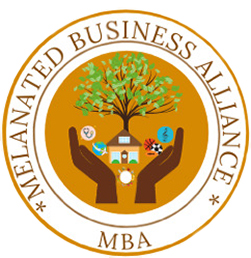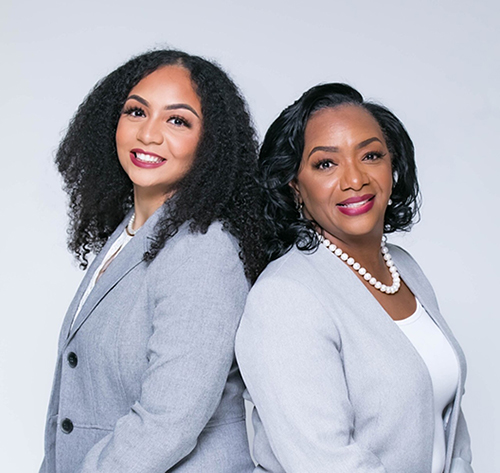WKAR News
Melanated Business Alliance co-founder: 'We're going to motivate businesses to continue to go for it'
Interview Transcript
Megan Schellong: This is Morning Edition on WKAR. I’m Megan Schellong.
In Lansing, one woman has set out to create a community support group for them.
Dr. Alane Laws-Barker is a Sparrow OB-GYN, who co-founded the Melanated Business Alliance with her daughter. It was formerly known as the Black Business Alliance in 2020.
She joins me now to discuss the launch of the group’s new website. Thanks for being here.
Dr. Alane Laws-Barker: Good morning, Megan. It’s wonderful to be able to talk with you today.
Schellong: And you as well. So, Dr. Laws-Barker, tell us what inspired you to start this group?
Laws-Barker: I started the group when one night I was looking through some things and thinking about how the pandemic was affecting businesses, everybody was hurting. And I knew if the healthcare industry was hurting, the business industry had to be hurting as well. And if the health care industry was showing disparities with people of color, businesses were also being affected in that way. And so, I got an idea to start a list so that people could engage those businesses.
Schellong: So, this group not too long ago was called the Black Business Alliance, why did the group name change?
Laws-Barker: The group name recently changed, because I feel like, you know, how we see all types of diversity? There is multi-levels of diversity in people of color, right.
And so, some people identify just as Black, but some people identify as multicultural, and biracial, and I didn’t want to exclude anyone. And I also believe that there is power in numbers. So, I wanted to engage the BIPOC community as a whole so that we could ensure that the businesses in our region have support.
Schellong: So when one business wants to join the Alliance, what kind of support can they expect?
Laws-Barker: The kind of support they can expect is number one, we have three pillars, right.
So, they can expect support in motivation. We’re going to motivate businesses to continue to go for it and not to give up, we’re going to motivate entrepreneurs to follow their dreams.
Number two, they can expect betterment, we’re going to have educational programs so that businesses can engage to find out the areas that they can grow in to make their business grow.
And the last pillar of ours is acknowledgment. We’re going to acknowledge that these businesses exist, that they have good services and good products, and customers want to and need to connect with them.
Schellong: So how does the membership look right now? How many are currently a part of the Alliance? And is there a goal for how many businesses you’d like to see in the Alliance overall?
Laws-Barker: Currently, we have 140 plus businesses registered with the Alliance. I would like to see, you know, it’s our first year with our website we just launched this week. So, I would like to see that number double. I don’t have any cap. But at least if we could double I think that would be wonderful.
Schellong: And so you’ve got about 140 right now, what are some of the challenges that some of these business owners have brought forth to you that you’ve seen entrepreneurs of color in the Lansing area face during the pandemic?
Laws-Barker: One of the main things is loss of customer support.
When people aren’t going out and about, they don’t often engage the small businesses.
You know the pandemic brought about different needs, needs for increased sanitation, disinfectant, having masks on hand, people to screen when people come in, small businesses are usually owned by a sole proprietor, one person trying to run everything.
And so, the financial burden that they, you know, took on when they tried to continue to be open during the pandemic was substantial.
And then a lot of small businesses don’t know how to fill out paperwork to apply for grants and PPE loans and the support they needed to make it through. So those were just a few of the challenges that we saw the businesses facing.
Schellong: What has been the most rewarding part of leading the Melanated Business Alliance so far?
Laws-Barker: The most rewarding part has been seeing businesses grow. People who had businesses in their home that were cooking in their kitchens, maybe unlicensed, now, they’re licensed, they have a commercial kitchen, or they have a food truck.
But I think the most rewarding part is recognizing that there is a connection between health and wealth.
And there is a connection between your area code determining your health outcomes. So, if businesses are thriving in some of those area codes, where Black and Brown people live, then people are getting jobs, they have benefits, they have insurance, they have better health. And so to me, that has been a great, a great benefit.
Schellong: Doctor Alane Laws-Barker is a Sparrow OB-GYN and the co-founder of the Melanated Business Alliance, thanks so much for your time today. I really appreciate it.
Laws-Barker: Thank you so much, Megan, for having me. And thank you for sharing the Melanated Business Alliance.
Schellong: The Melanated Business Alliance’s new website is online at MBALansing.org.
This conversation has been edited for clarity and conciseness.

